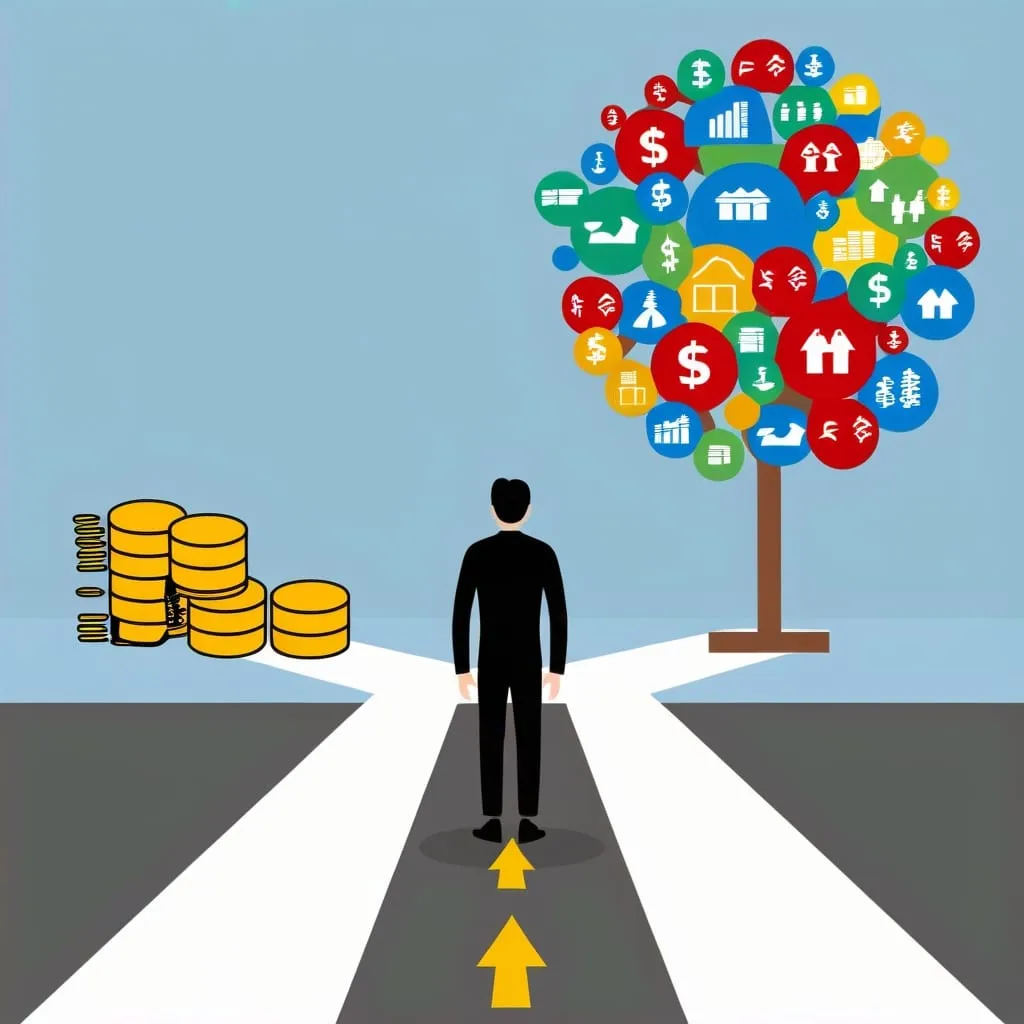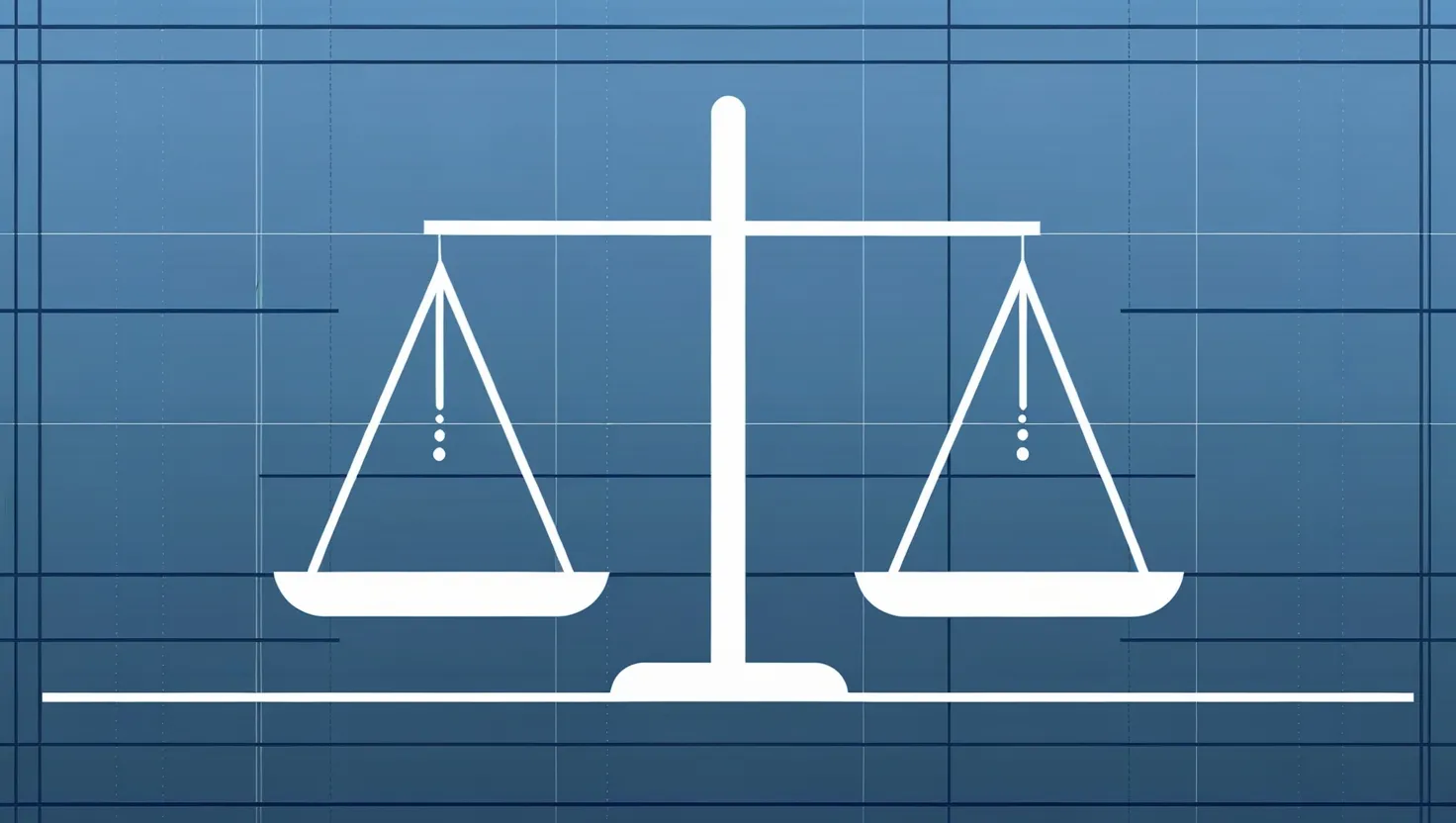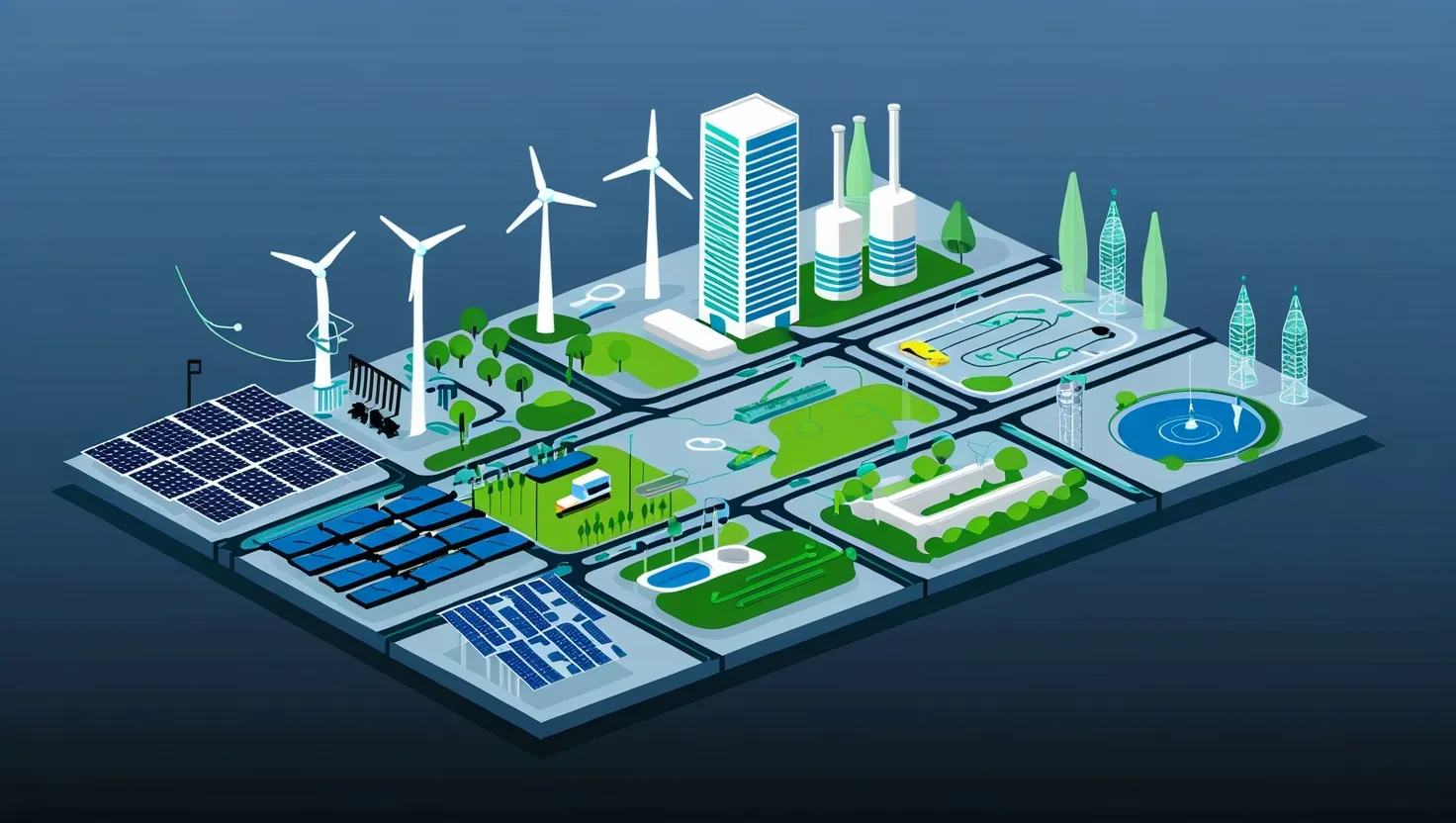The concept of wealth and poverty feels ingrained in our society. We see extravagant lifestyles splashed across media, while others struggle to make ends meet. The question lingers: is this divide simply a matter of income, or is there something deeper at play?
The answer lies in spending habits. It's not just the amount in a bank account, but the choices made with that money that truly shape financial destinies. The wealthy may invest in assets that appreciate over time or prioritize experiences that enrich their lives. Meanwhile, those with limited resources might focus on immediate needs, leaving little room for saving or investing.
This article delves into this complex issue. We'll examine the spending patterns that separate the rich from the poor, exploring how necessities, luxuries, investments, and even financial education play a critical role in building or eroding wealth.
Assets VS Liabilities
One of the defining factors separating the wealthy from the financially struggling is their focus on assets versus liabilities. Understanding this contrast is key to navigating the complexities of wealth building.
In simple terms, an asset puts money in your pocket, while a liability takes money out. Assets are things you own that have the potential to generate income or increase in value over time. Think of things like:
- Investments: Stocks, bonds, mutual funds
- Real estate: Rental properties, land
- Businesses: Ownership in a profitable venture
- Intellectual Property: Patents, copyrights
Liabilities, on the other hand, are your financial obligations. They represent money you owe. Examples include:
- Debt: Mortgages, car loans, credit card balances
- Recurring expenses: Rent, utility bills, subscriptions
- Depreciating items: A car that loses value over time
The wealthy understand the power of acquiring assets. They invest in things that have the potential to appreciate and work for them, passively generating income. In contrast, those struggling financially often get trapped with liabilities. Their focus might be on immediate needs or acquiring possessions that depreciate in value, draining their resources over time.
Building wealth isn't about avoiding spending entirely. It's about being strategic. Prioritizing the acquisition of assets over liabilities is a key principle the wealthy follow. It's the concept of making your money work for you, rather than constantly working to pay off debts or fund depreciating possessions. By shifting your spending habits toward assets with the potential for growth, you can lay the foundation for long-term financial stability and prosperity.
Needs vs Wants
Needs and wants form the foundation of our spending habits, but understanding the difference is crucial, especially when it comes to the wealth gap. Needs are the essentials of life: food, water, shelter, and basic clothing. These items are non-negotiable for survival. Wants, on the other hand, are the realm of desire – vacations, electronics, or a fancy dinner out.
The wealthy often have the luxury of easily fulfilling their needs. This gives them space to focus on wants, or even invest in assets that grow over time. However, those facing financial hardship may find themselves locked in a cycle of satisfying immediate needs. This constant pressure can make it difficult to save or plan for the future.
The ability to distinguish between needs and wants becomes significant here. While a new phone might feel vital, recognizing that it's a want allows for better choices. Prioritizing basic needs can open doors for saving, investing, and building a more stable financial future—a path that immediate gratification often hinders.
To break the cycle of poverty, it's crucial to focus on your basic needs first. But make sure you can tell the difference between what you truly need and what you simply want. Needs always take priority. Then, start acquiring assets and investing your money – these build wealth over time. Only after that should you consider spending on your wants.
Understand your essential needs and make those your top priority. The key is knowing what's a necessity versus a desire. Once your needs are covered, focus on acquiring assets and investing as ways to build wealth. After you've built a solid foundation, then you can start thinking about your wants.
Breaking free from poverty starts with a simple rule: needs before wants. Always make sure your essentials are met. Then, instead of spending on non-essentials, focus on acquiring assets and making smart investments. This is how you create lasting wealth and a secure future.
Experiences vs Possessions
When it comes to spending, there's a fundamental difference between acquiring possessions and investing in experiences. This distinction plays a key role in how wealth is used and accumulated.
Material possessions—cars, jewelry, the latest gadgets offer a fleeting sense of satisfaction. The initial thrill fades, leaving us craving the next purchase. It's a cycle of temporary highs, often fueled by the desire to keep up with trends or societal expectations. On the flip side, experiences—travel, concerts, learning new skills—create lasting memories and personal growth. These moments shape who we are, and their value extends far beyond the immediate enjoyment.
The wealthy often prioritize experiences, understanding their enduring impact. Luxury vacations, unique culinary adventures, or transformative cultural events enrich their lives and create a wealth of memories. In contrast, those with limited resources might focus on material possessions in an attempt to attain a sense of status or fulfillment. However, these objects rarely provide lasting happiness.
Breaking free from poverty starts with a simple rule: needs before wants. Always make sure your essentials are met. Then, instead of spending on non-essentials, focus on acquiring assets and making smart investments. This is how you create lasting wealth and a secure future.
Ditch the focus on material things and invest in enriching experiences. They offer fresh perspectives that can fuel your professional growth and lead to greater wealth. Remember, amazing experiences can be budget-friendly: think hikes, community meetups, and free online learning opportunities.
Prioritizing experiences over possessions can be a game-changer for your financial future. They offer new insights that can spark career advancement and entrepreneurial success. And the best part? Meaningful experiences don't always come with a hefty price tag. Consider simple yet powerful options like hiking, networking events, or free online courses.
The focus on experiences over possessions isn't about denying oneself pleasure. It's about a shift in mindset. Recognizing that the most valuable things in life aren't always tangible can lead to a more fulfilling use of money. It's a perspective shift that can benefit everyone, regardless of income level. By prioritizing experiences, we invest in our happiness, personal growth, and a richer life story that no object can ever replace.
The "Treat Yourself" Mindset
In today's world of instant gratification, the "treat yourself" mindset has become a powerful force shaping our spending. Coined by pop culture and fueled by social media, this mantra encourages indulging in small luxuries as a reward for hard work or simply as a mood booster. While the occasional treat can be harmless, this mindset can become insidious, especially for those with limited budgets.
The problem lies in the slippery slope. What starts as an occasional indulgence—a fancy coffee, a new pair of shoes—can quickly escalate into a habit. These small purchases, while seemingly insignificant individually, add up over time, siphoning away valuable resources. This focus on immediate gratification can leave little room for long-term financial planning like saving or investing.
The "treat yourself" mindset can also become linked to self-worth. We might feel pressure to keep up with the curated lives we see online, leading to unnecessary spending to achieve a certain image. True self-care, however, lies in building a stable financial foundation, fostering self-discipline, and prioritizing our future well-being.
It's important to strike a balance. While small treats can be enjoyable, it's crucial to be mindful of our spending and distinguish between true needs and fleeting desires. Prioritizing saving, investing, and experiences over impulsive purchases can lead to greater long-term satisfaction and financial security. By understanding the pitfalls of the "treat yourself" mindset, we can make choices that truly align with our goals and values.
Financial Literacy
Imagine navigating a complex maze without a map. That's what managing finances without financial literacy feels like. It's a world of confusing terms, conflicting advice, and hidden pitfalls lurking around every corner. Financial literacy empowers individuals to make informed decisions about their money, paving the way for financial stability and long-term success. It's a crucial component in understanding the stark difference in how the rich and poor navigate their finances.
Financial literacy encompasses knowledge on topics like budgeting, saving, debt management, investing, and retirement planning. Without this knowledge, people are more vulnerable to financial traps. High-interest credit cards, payday loans, and investment scams can easily prey on those lacking financial understanding. Consequently, individuals are more likely to accumulate debt, struggle to save, and lack a game plan for their financial futures.
The wealthy, on the other hand, often have a strong grasp of financial concepts, either through formal education or access to financial advisors. They understand the power of compound interest, the value of diversification, and the importance of planning for the long term. This knowledge translates into smart investment choices, building wealth, and achieving financial goals.
Sadly, a widespread lack of financial literacy contributes to the wealth gap. Those without this knowledge find it incredibly difficult to escape the cycles of paycheck-to-paycheck living and accumulating bad debt. Improving financial literacy, especially in underserved communities, is crucial for breaking these cycles. It empowers individuals to take control of their money and create financial plans leading to stability and opportunity.
Financial literacy isn't just about numbers. It's about understanding the power of financial choices. It involves knowing how to budget effectively, differentiate between good and bad debt, and recognize the value of regular saving and smart investing. With this knowledge, individuals from all walks of life can build a brighter financial future – a future where they control their money, instead of their money controlling them.
The Price of Status
The desire for status is a powerful force that influences spending across all income levels. We live in a world where our possessions and perceived lifestyle are often seen as markers of success and belonging. But this pursuit of status comes with a price tag, both financially and often emotionally.
The wealthy, of course, may indulge in luxury goods as status symbols. Designer clothes, exotic cars, and exclusive memberships are ways to signal their affluence and social standing. However, the pressure to "keep up appearances" extends beyond the ultra-rich.
Those with limited means might also feel tempted to spend beyond their budget to acquire status symbols. The latest smartphone, trendy clothes, or even a night out at an expensive restaurant can become ways to project an image of success, even if it creates financial strain. This focus on material possessions can divert resources from more important financial goals like saving, investing, or paying down debt.
The price of status goes deeper than just dollars and cents. The constant comparison and pursuit of external validation can take a toll on our self-esteem and mental well-being. It fosters a mindset where our worth is tied to what we own rather than who we are.
It's important to break free from the trap of status-driven spending. This means recognizing that true wealth lies in financial stability, meaningful experiences, and a strong sense of self. Instead of chasing fleeting symbols of success, focus on building a life that aligns with your values and goals. By spending mindfully and prioritizing your long-term well-being, you can free yourself from the financial and emotional price of status.
Conclusion
The way we spend our money tells a story. It reflects our priorities, our values, and ultimately shapes our financial future. The spending habits of the rich and the poor reveal a stark contrast, a tale of investment versus consumption, long-term planning versus immediate gratification.
Understanding these differences isn't about judgment or envy. It's about empowerment. By recognizing the pitfalls of needs vs. wants confusion, the "treat yourself" mentality, limited financial literacy, and the allure of status symbols, we can gain control of our financial narratives.
The path to financial stability isn't about becoming wealthy overnight. It's about making conscious choices, prioritizing assets over liabilities, and investing in both experiences and our understanding of money. It may require sacrifice and discipline, but the reward is freedom – the freedom to build a life of security, opportunity, and true fulfillment. Remember, money is simply a tool. Let's choose to use it wisely and build a future where our finances are a source of strength, not stress.






